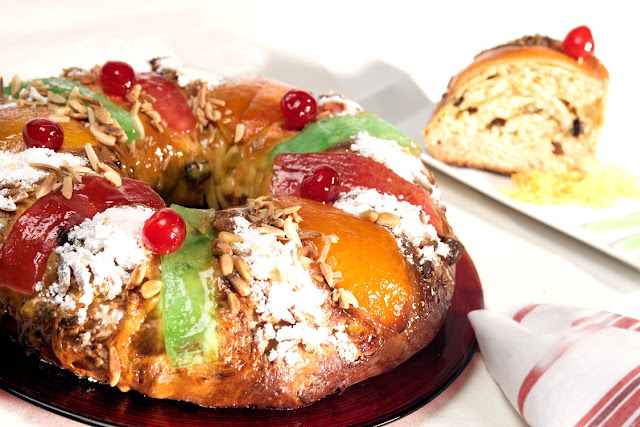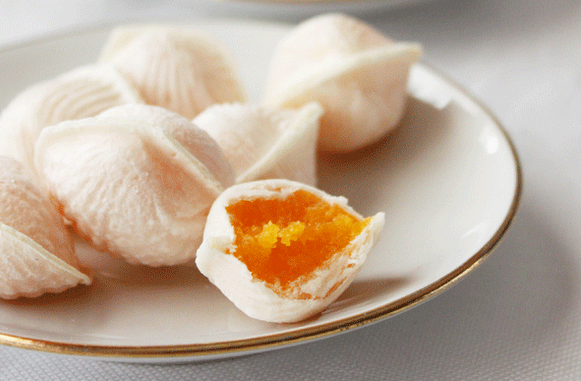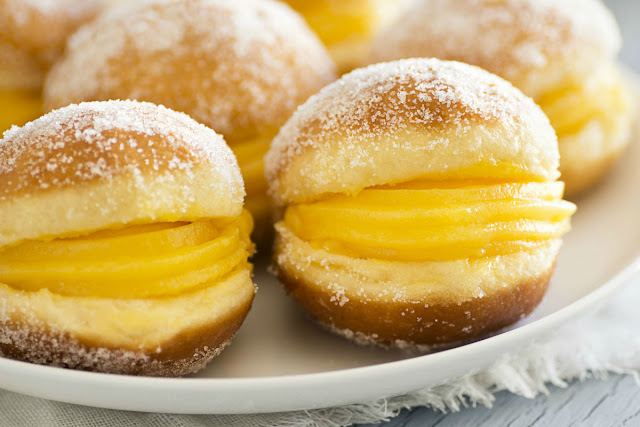Traditional Portuguese desserts: Bolo-Rei
Bolo-Rei ( lit. King Cake)
The Bolo-Rei is a traditional Portuguese cake that is usually eaten around Christmas, from December 25 until Epiphany on January 6th. It is a staple dessert in any Portuguese home during the holidays.
It's an unmistakable cake with its round shape with a hole in the middle like a crown and its crystallized fruits on top of it. You'll find it in every Portuguese pastry shop from the beginning of November to the end of January.
Traditionally, there is also a fava bean inside the cake, usually a large bean. The family tradition says that whoever has the slice with the fava bean is the King and has to buy or bake next year's cake. However, in order to avoid serious problems, nowadays the pastry shops choose not to put anything inside the cake beyond what you can actually eat.
History of the Bolo-Rei
The Bolo-Rei originated in France and only arrived in Portugal during the nineteenth century, when the Confeitaria National opened as Portuguese monarchy's official bakery in 1829.
The Confeitaria National was the first to introduce this recipe to the country.

 |
| Confeitaria Nacional |





Comments
Post a Comment